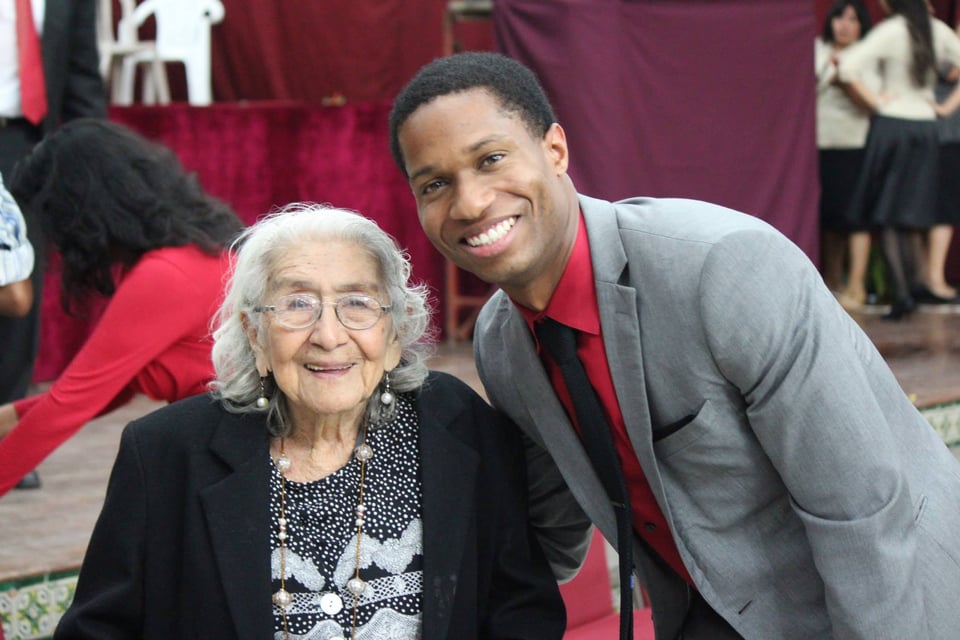Working Through Language Barriers at the Feast
Written by Corbin Jackson
La fiesta de tabernáculos! La fête des tabernacles! Ang kapistahan ng mga tabernakulo! In any language, the Feast is a great time for friendships.

The Feast of Tabernacles is truly a wonderful time for all of us in the Church of God. Not only does it symbolize a time in the future when peace and joy will extend throughout all the nations of the earth, but it is also a time when many of us have the opportunity to travel around the globe to celebrate God’s Feast with our brethren in other parts of the world.
Anyone who has traveled to a foreign country for the Feast knows that language barriers can have a huge impact on our Feast experience in a limiting way. However, it doesn’t have to be that way! Over the years, I’ve managed to find ways to work through the language barrier, and while it wasn’t eliminated completely, I certainly found myself getting to know non-English-speaking brethren on more than a superficial, introductory basis.
Here are two things to keep in mind that can help you work through the language barrier when keeping God’s Feast abroad.
1. A few words can translate into many conversations.
If you are like me, you may have found when learning anything new, especially a new language, that some previous book knowledge on the subject can go a long way toward feeling confident about putting it into practical use. Before I would travel to a new country in Latin America, I would typically read up on the common slang or expressions, popular food names, and some basic phrases such as, “What is your name?” “How old are you?” and “What do you like to do for fun?”
You do not have to take a semester-long Spanish course or get an in-depth knowledge of romance language syntax and grammar! Memorizing a few simple phrases and questions can go a long way in not only breaking the ice, but also creating a space for continued mutual conversation.
One question that goes a long way in almost any country is: “How do you say this in [insert language]?” Not only is it a perfect means to expand your vocabulary, but it also creates another opportunity for you to interact with the local brethren.
So before you travel, take some time to learn a little bit of the language spoken where you will be keeping the Feast. The more words, questions and phrases you know, the more conversation starters you will have at your disposal.
2. Something poorly pronounced is better than something never said.
One of the hardest things to do when meeting people who speak a different language is working up the courage to initiate a conversation. Many times our fear of saying something wrong or embarrassing ourselves with a terrible accent can prevent us from even trying to communicate.
Likewise, the fear of not being understood, or not understanding someone else, can almost make us think that we would be doing everyone a favor by just not saying anything at all outside of our native language. But this could not be further from the truth! In general, even a poorly pronounced phrase in other people’s native language is a wonderful sign to them that you have taken a genuine interest in their culture or country.
Rather than being seen as a blatant disregard for and butchering of their language, our attempts to communicate can actually be viewed as a sincere attempt to get to know them. While it’s never ideal to have trouble communicating, being in an environment such as the Feast—surrounded by members of God’s Church, brethren who are eager to get to know you—is probably the one situation where you can be sure that a few poorly pronounced, yet sincere, sentences can be valued as much as pristine grammar.
Language barriers don’t have to prevent us from getting to know our brethren in other parts of the world. Keeping in mind these two points can help you find the courage to work through linguistic differences during your Feast travels. While the words we use may be different, our hope and calling is the same.
As Paul said in Ephesians 2:19-22: “Now, therefore, you are no longer strangers and foreigners, but fellow citizens with the saints and members of the household of God, having been built on the foundation of the apostles and prophets, Jesus Christ Himself being the chief cornerstone, in whom the whole building, being fitted together, grows into a holy temple in the Lord, in whom you also are being built together for a dwelling place of God in the Spirit.”
To discover all the places around the world where we have Festival sites, visit the COGWA Feast of Tabernacles website.










